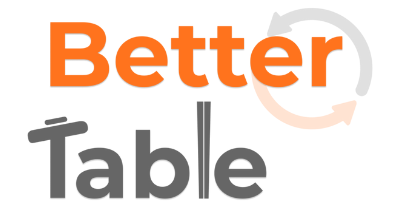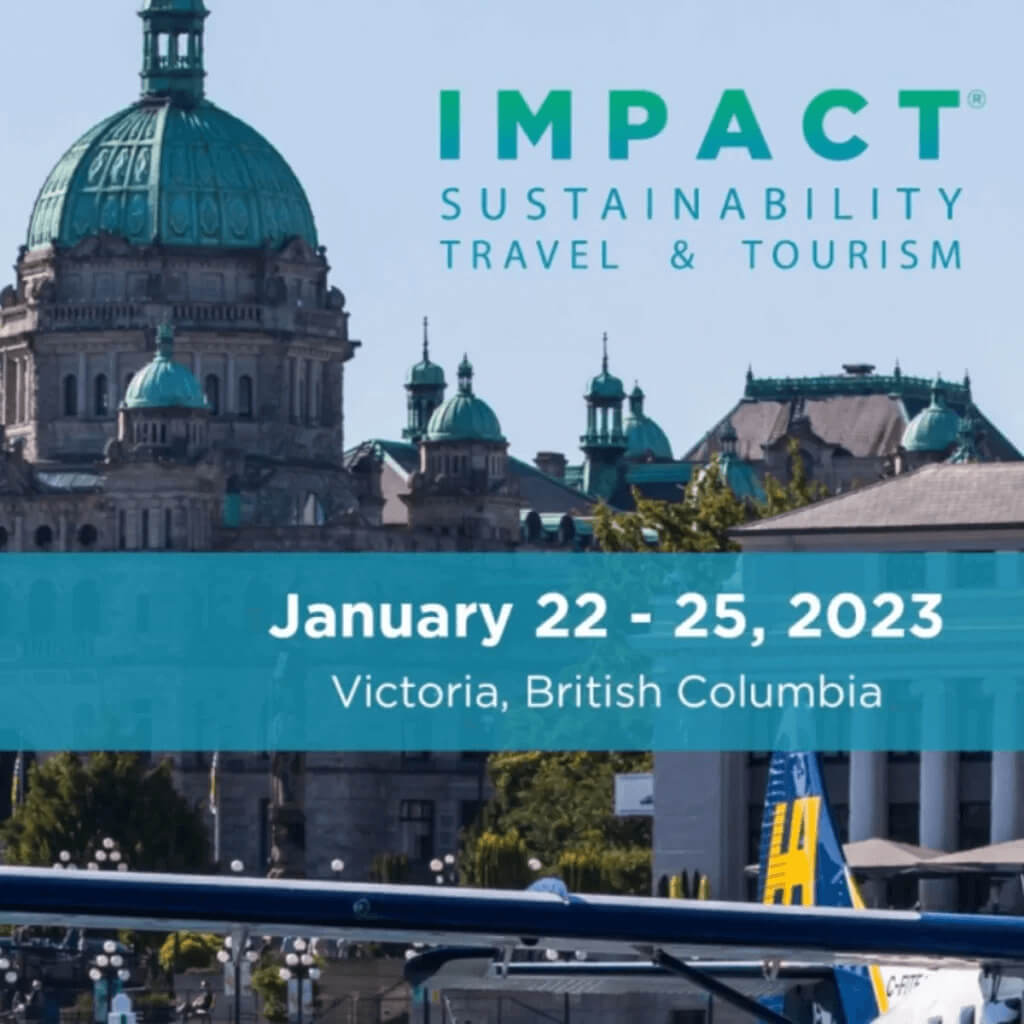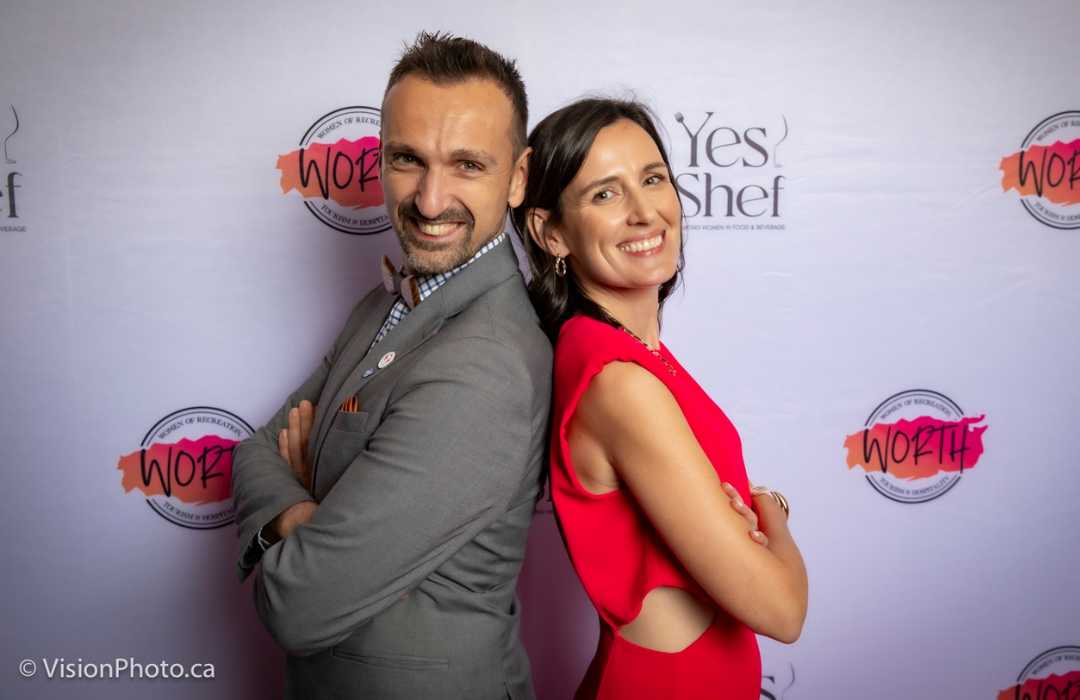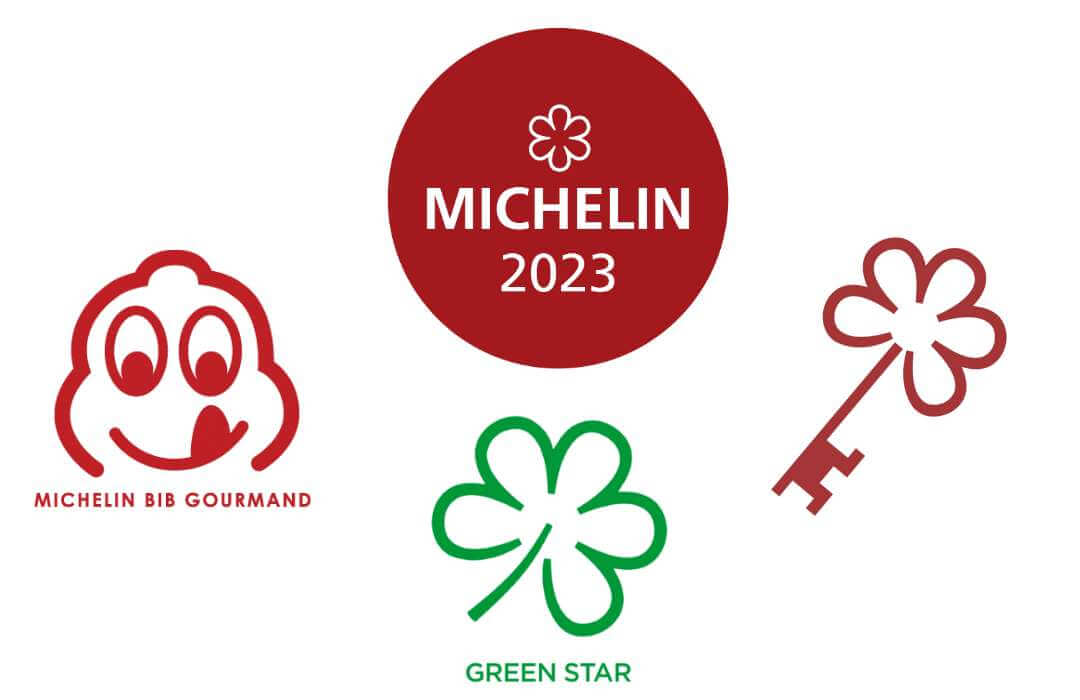Prevention of Food Waste
If you’ve already read our ‘About us’ excerpt, you probably have a pretty good understanding of what Rethink2gether strives to achieve and why we do it.
The effort to prevent food waste is not a foreign concept and is growing as a mindset as the years go by. However, it still seems to lack the awareness and urgency amongst its other sustainability counterparts (e.g. plastic, emissions, etc.). This is why we, as a company, feel it is so important to work with industry leaders to propel this awareness of food waste and to incorporate change in all aspects of sustainability, especially in the hospitality industry.
Food waste consulting means coaching businesses that incorporate food services (like hotels and restaurants) to implement strategies by systematically targeting 1. prevention of food waste and reduction of food costs, and then 2. managing their food surpluses.
According to our food waste specialist and co-founder, Ben Liegey, avoidable food waste in Canada is worth $49 billion a year ($7 billion being attributed to the hospitality sector alone), from farm to plate. And in the BC hospitality industry, 7% of food revenues are linked to food waste. In most cases, that’s more than the profit margin! Despite the economic downfalls, it’s also an obvious contributor to CO2 emissions, accounting for 8% of total emissions. Though some restaurants and hotels are beginning to understand the consequences of their actions, these numbers are still creeping up in tandem with the recent rise in food costs.
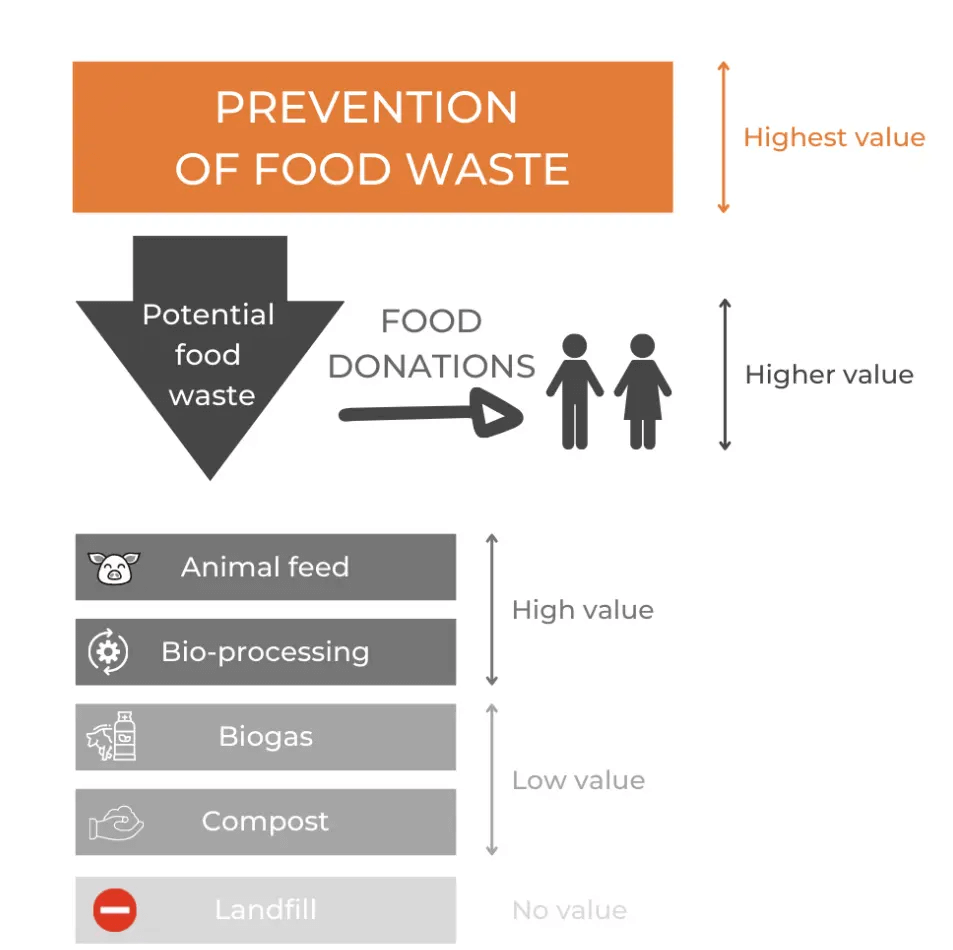
There are different options for addressing food waste, but prevention is the only strategy that stops waste at the root of its cause.
While diversion to compost and donations have their place, many businesses only deal with food waste 1. after it is created 2. after a food service operation has incurred the cost, and 3. after it has had a substantial environmental impact through transportation and preparation. All in all, prevention provides the largest financial and environmental benefit of any solution.
Types of Food Waste
So what is food waste? When we talk about food waste, oftentimes we think about the food we don’t finish eating or the food we let spoil in our fridge. It turns out, that the four main types of food waste in the hospitality business are:
- Spoilage – food that has gone bad.
- Preparation waste – off-cuts of food scraps from prepping ingredients.
- Buffet waste – excess food coming from buffets.
- Plate waste – leftovers that a customer leaves on the plate that is not suitable for further usage.
The key takeaway here is that it’s important to start measuring these types of waste to make data-driven decisions. You can only manage what you measure, so it’s crucial to understand these concepts and understand how one can effectively implement methods to track and reduce waste that comes from these different types of food waste.
3 Quick Tips For Hotels & Restaurants To Reduce Food Waste
- Be creative with your cooking – tackling prep waste and reducing spoilage.
- Provide portion sizes for dishes – tackling plate waste.
- Measure food waste – manage the food waste after the above strategies have been implemented. You’ll get a better understanding of how much food is being wasted and areas you can focus on to devise a tailored plan of execution.
Food waste prevention is the number one solution you can implement in your business to save on food costs. Bringing awareness to this is extremely important to us, not only as a company but as individuals as well. Keep track of the food you waste and know the areas in which you can prevent it.
Rethink2gether is on a mission to help commercial kitchens prevent food waste and improve their bottom line. If you’re in search of help or more information to prevent food waste in your business, we provide a number of resources such as training, technology, and a certification program to help you achieve those goals.
“I have worked in the hospitality sector in British Columbia, for sustainable leaders like SPUD.CA and the Rocky Mountaineer. I have also helped the Sandman Hotel to assess the food waste baseline for their restaurants in Kelowna: Denny’s and Moxies. The situation can be very different from one outlet to another, showing it is key to measure food waste to better understand your operations and take action where it really matters.”
– Ben Liegey
